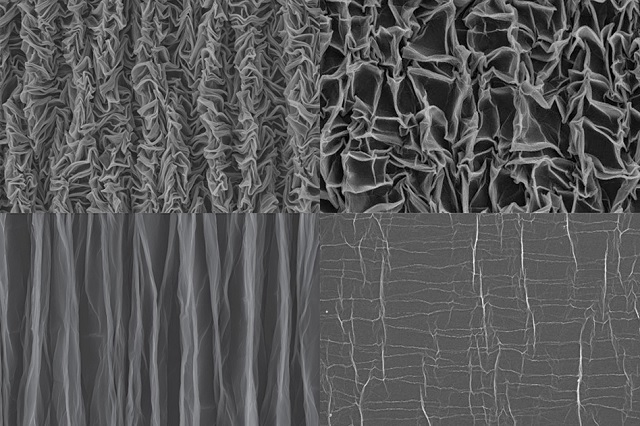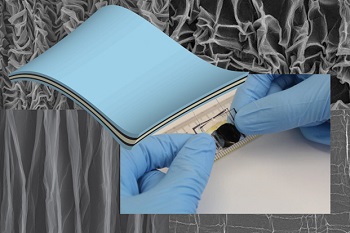
Image courtesy of the researchers.
In a supercapacitor, energy is stored in electrostatic form which enables the rapid delivery of energy. This is quicker than energy delivery by normal batteries.
Many people are exploring graphene paper: It's a good candidate for making supercapacitors, because of its large surface area per mass.
Xuanhe Zhao, Assistant Professor of Mechanical Engineering
When graphene paper was crumpled by the researchers at MIT, it became a mass of folds. The supercapacitor made from them could be folded, bent and stretched to around 800% of its original size.
The research team demonstrated that the novel material could be repeatedly flattened and crumpled around 1000 times without significantly affecting its performance. The robust nature of graphene paper enabled large deformations over repeated cycles.
 Image courtesy of the researchers.
Image courtesy of the researchers.
The researchers crumpled graphene paper by placing the material within a mechanical device and then compressed it in a single direction. This led to parallel fold formation. The sheet of material was then compressed in the other direction, which led to a rumpled surface. These folds smoothened when the material was stretched.
Capacitors are usually made of two conductive layers with an insulating layer in between. In this experiment, the researchers used two sheets of graphene paper with a hydrogel material in between.
This hydrogel material could be stretched and deformed. Hence when the capacitor was stretched, all three layers maintained their contact.
The researchers claim that crumpled graphene could be used to make stretchable sensors and electrodes in flexible batteries in the future. This study has been published in the Scientific Reports journal.